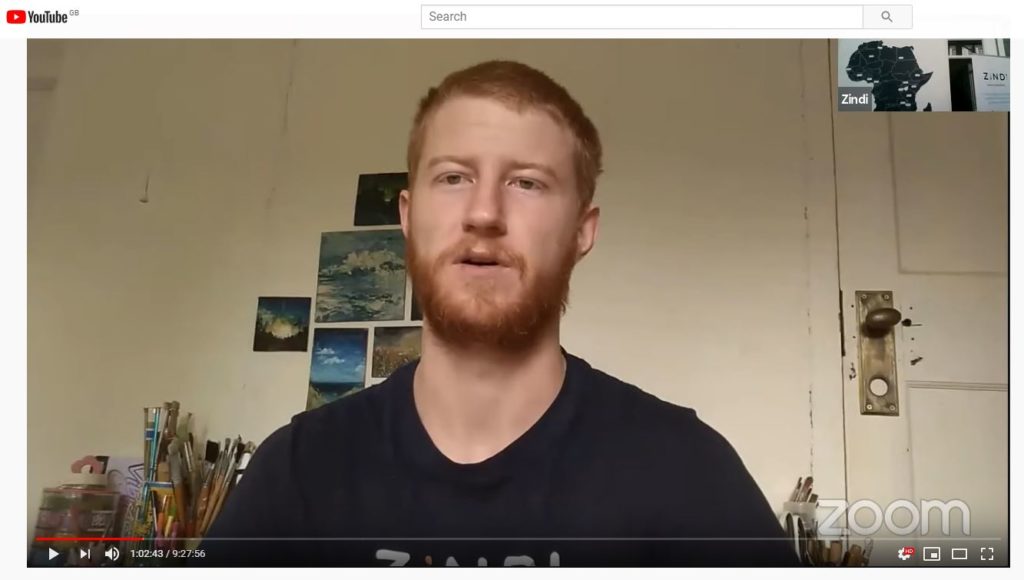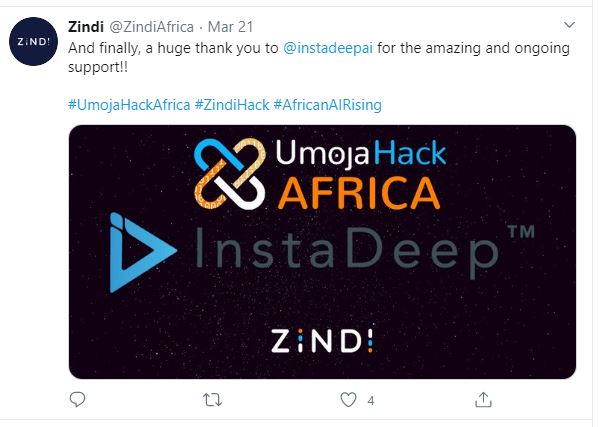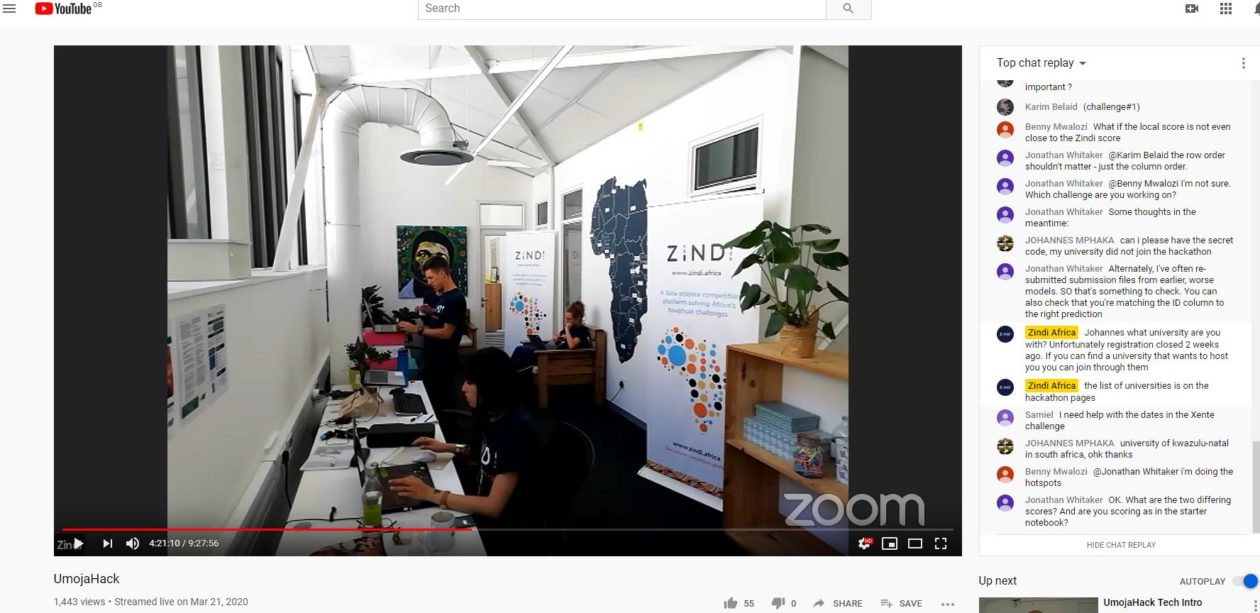Uncertain times call for new ways of thinking and innovative ways to interact. With this in mind, Zindi – the leading African online competition platform, came up with the idea of remotely connecting students across the African continent to crowd-solve challenges in health, education, environmental conservation, and business through the day-long UmojaHack Africa competition. InstaDeep was one of the companies who recognised the initiative and sponsored the event alongside Microsoft, African Bank, Google Research, Liquid Telecom, Alliance4ai, and the Field Institute.
Safe and positive environment
The inter-university AI hackathon gathered more than 1,000 participating students from over 70 universities in 18 African countries. As a sponsor, InstaDeep helped spread the news of the hackathon, getting students from schools such as the top computer science school in Algiers, ESI, and SupCom in Tunisia to take part.
It is encouraging to see the communities coming together in times of uncertainty and create positive and safe environments to engage through. “Despite the challenging environment we experience across the globe at this point, we believe it’s our duty to sponsor this event and create channels for African AI talents from all the continent’s universities to participate”, says CEO and Co-Founder of InstaDeep, Karim Beguir.
Celina Lee, Zindi’s chief executive officer says, “This level of collaboration and partnership across Africa is very exciting, and it is quite simple for students to join remotely through Zindi.”
Real-world challenges
The machine learning solutions and skills developed by the participants during UmojaHack Africa promise large-scale improvements to people’s lives. On the day, the teams of data scientists were therefore faced with three real-world challenges to find the best solution for; Hotspot Fire Prediction Challenge, SAEON Marine Invertebrate Classification Challenge, and a Xente Purchase Prediction Challenge, all streamed live available on YouTube.

Zindi Data Scientist John Whitacker explaining the hackathon from home.
Different and unique
InstaDeep’s Mohamed Jedidi supported the challenge on the day. “This hackathon was very different since everyone was participating from home. Hence, they couldn’t easily exchange information which resulted in people pushing their limits further and working harder to win. This led to a broader variety of promising solutions for each hack that I am looking forward to seeing implemented in real-life”, said Jedidi. About the general vibe and atmosphere, he added, “I felt strong positive energy from the participants despite the COVID-19 pandemic circumstances”.
Also on social media, the feedback was incredible with comments such as “Today was great…. Thank you @ZindiAfrica & @ChinhoyiCUT, we enjoyed the challenges”, from @Tendow77, and “Such a thrill knowing that students from over 70 African universities are working towards the same goal – solving challenges in Africa using Data Science. A sneak peek on how we handled the #COVID_19 self-isolation practice during the #UmojaHackAfrica,” from @spookyPendo.
Transform Africa with AI
It was evident that the virtual hackathon provided a sense of normality in the AI community and Zindi’s platform succeeded in bringing together Africa’s leading and future talent. At the end of the hackathon, Zindi thanked everyone who participated and congratulated the winners on their Twitter page; “We are so grateful to have our community and together we can transform Africa with AI!” they wrote.
At InstaDeep, we couldn’t agree more. With our vision of creating an AI-first world that benefits everyone, we are proud to partner with Zindi on this initiative and we look forward to working together on similar initiatives in the future.

